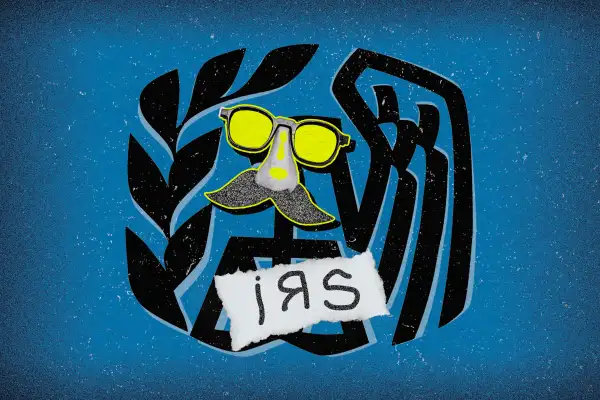'Phishing on an Industrial Scale': The IRS Is Warning of a New Text Message Scam

Be warned: Fraudsters are sending texts disguising themselves as the IRS in an attempt to trick you with offers of fake COVID-19 relief or tax credits that are too good to be true.
In a news release this week, the federal tax agency said it's identified a recent spike in phishing attempts that are coming through as text messages. IRS-themed scams have targeted hundreds of thousands of Americans in recent months. The texts direct taxpayers to click a link that collects personal information or sends malicious code to users' devices.
"This is phishing on an industrial scale,” IRS Commissioner Chuck Rettig said in a news release.
The best way to avoid becoming a victim of a phishing attempt is to not click suspicious links. In fact, the IRS says you can delete any texts that claim to be from the agency. If you do receive a spam text, the IRS encourages you to report it via email. (Further instructions on how to do that are available here.)
Since the fall of 2020, the IRS has observed an increase in phishing scams that seek payment or personal information. The recent surge in text scams, which are known as "smishing" attempts," is simply the latest round of fraud — and it likely won’t be the last.
Scammers have been aggressively capitalizing on the pandemic, and not just through tax scams: Thousands of Americans have been victims of investing scams, online shopping fraud and fake online lotteries.
The Federal Trade Commission reported that Americans lodged nearly 6 million fraud and scam complaints in 2021. In total, the amount of money people said they lost to scammers was up 70% from the year before.
By knowing how the IRS does contact taxpayers, you'll be better able to spot fraud if it comes your way.
Does the IRS text you?
No. The IRS never reaches out to taxpayers via text message, the agency says. So you can feel good about automatically ignoring any text that purports to be from the IRS.
Does the IRS email you?
No, same deal. The IRS does not initiate conversations by email, nor does it use social media.
Does the IRS call you?
Usually, a phone call will not be the first form of communication from the IRS. In some cases, the IRS may call about matters like an overdue tax bill or an unfiled tax return.
How does the IRS contact you?
The IRS typically initiates contact with taxpayers by sending a letter through the U.S. Postal Service. In some extreme cases, IRS employees also visit homes to contact taxpayers — but "even then," the agency says, it usually mails "several letters" first.
More from Money:
Beware New Crypto App Scams: FBI Says Investors Have Lost Millions
17 States Giving Out Stimulus Checks and Tax Rebates This Fall
The IRS Is Sending Special Refund Checks to 1.6 Million Taxpayers This Month

